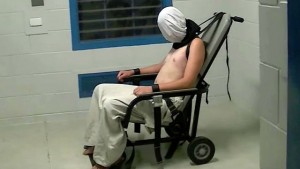Home » Commentary » Opinion » Don Dale inquiry: silver lining and sliver of hope
· Ideas@TheCentre
 The Don Dale scandal has shed multiple lights on the root causes and consequences for abused and neglected children damaged by dysfunctional parents. As a range of commentary in The Australian this week by Kerryn Pholi, Anthony Dillon and myself pointed out, these children are failed by flawed child protection policies, and end up in juvenile detention and similar facilities due to their wild and uncontrollable behaviour.
The Don Dale scandal has shed multiple lights on the root causes and consequences for abused and neglected children damaged by dysfunctional parents. As a range of commentary in The Australian this week by Kerryn Pholi, Anthony Dillon and myself pointed out, these children are failed by flawed child protection policies, and end up in juvenile detention and similar facilities due to their wild and uncontrollable behaviour.
The immediate response from the federal government — the announcement of a Royal Commission — has been criticised as a knee-jerk action. This is fair enough, given the way former Northern Territory Chief Magistrate Brian Martin was forced to resign 100 hours after being appointed due to perceived conflicts of interest and following criticism of some of his sentencing decisions in criminal cases while on the bench.
We can at least be thankful that some due diligence occurred, and child protection services, as well as scrutiny of corrective services, was included in the terms of reference.
The Turnbull government overcorrected somewhat by bowing to pressure from Indigenous groups and appointing veteran Indigenous activist and former Aboriginal and Torres Straits Islander Social Justice Commissioner Mick Gooda as one of two replacement co-commissioners.
However, there may be a silver lining.
Child protection services fail Indigenous children primarily due to the so-called ‘culturally appropriate’ approach that is taken, which means Indigenous children frequently receive a lesser standard of protection and care. Hence, they are left in appalling homes, or are placed into poor quality kinship placements with relatives, in circumstances in which non-Indigenous children would not be left or placed.
But because of the legacy of the Stolen Generation and the resulting sensitivities surrounding Indigenous child protection, there is unlikely to be any change to current practice — which the overwhelming majority of Indigenous stakeholders support — without Indigenous leadership on this issue to pave the way for action by governments.
If the Royal Commission exposes the flaws and failures in current practice, Commissioner Gooda may be able to provide the Indigenous leadership that is desperately needed in this area.
So the silver lining might contain a sliver of hope for change — which is more hope than many Indigenous children trapped in a cycle of disadvantage currently have.
Jeremy Sammut is a Senior Research Fellow at the Centre for Independent Studies, and author of The Madness of Australian Child Protection.
Don Dale inquiry: silver lining and sliver of hope